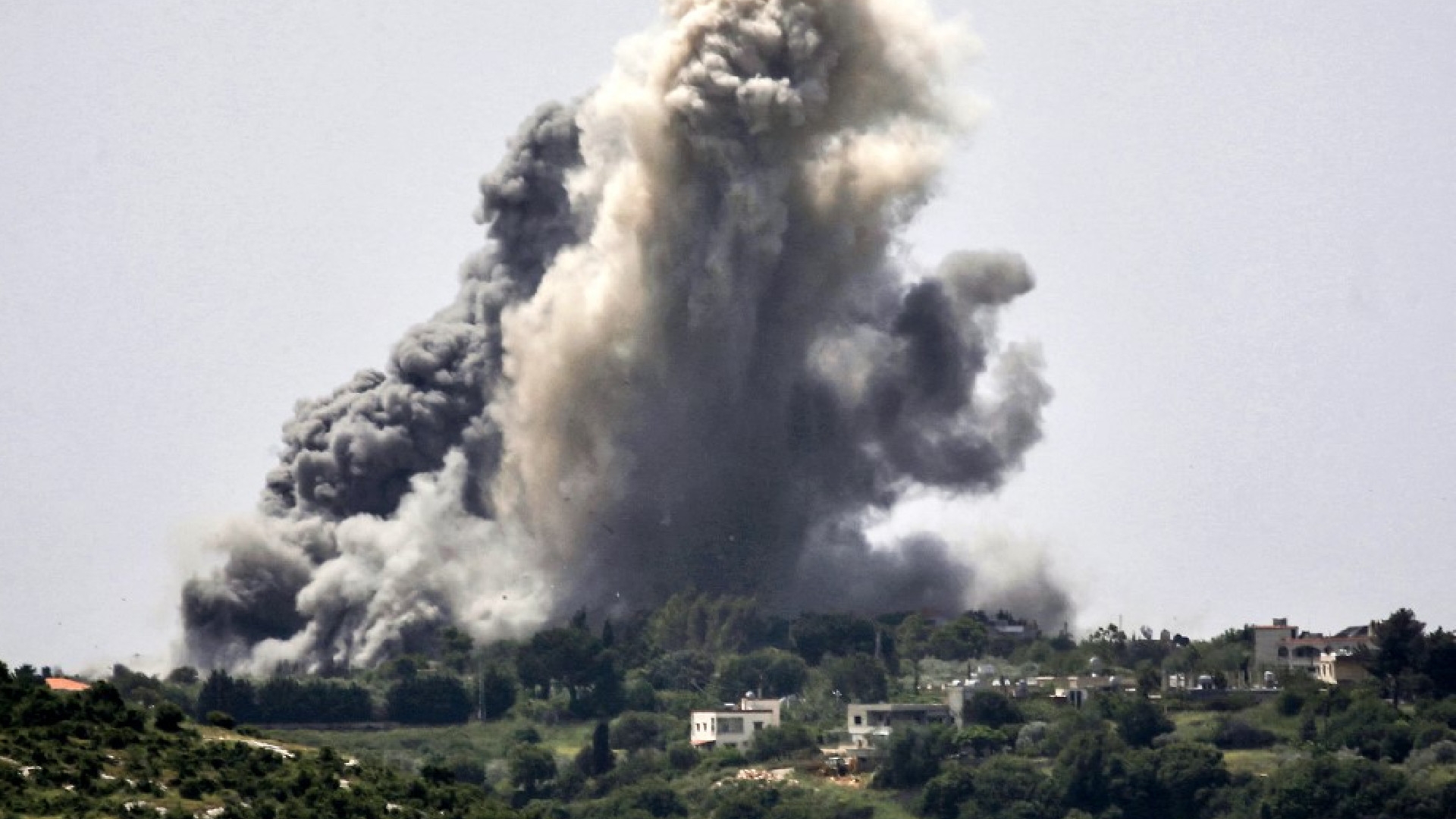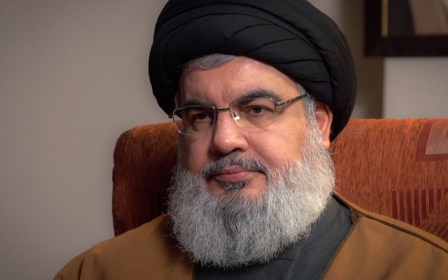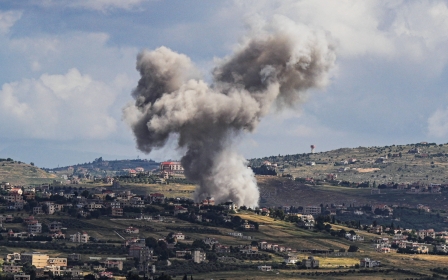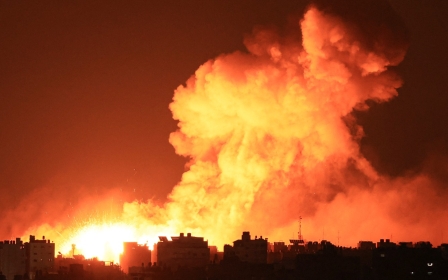Israel unlawfully used white phosphorus in south Lebanon, HRW warns

Israeli forces have unlawfully dropped white phosphorus munitions on densely populated areas in southern Lebanon, Human Rights Watch has warned.
In a report released on Wednesday, the rights group said it had verified images and footage of multiple airbursts of artillery-fired white phosphorus in at least 17 municipalities since October 2023, including five municipalities where the phosphorus was used unlawfully on populated residential areas, resulting in civilian displacement.
The use of airburst white phosphorus on areas with a dense civilian population is prohibited under international law, as the weapon inflicts indiscriminate harm on civilians.
White phosphorus is an incendiary chemical that ignites when in contact with air and can cause severe burns in people or structures it comes into contact with.
Images and footage shared with researchers showed the munitions hitting residential buildings in the southern Lebanese border villages of Kafr Kila, Mays al-Jabal, Boustane, Markaba, and Aita al-Chaab.
New MEE newsletter: Jerusalem Dispatch
Sign up to get the latest insights and analysis on Israel-Palestine, alongside Turkey Unpacked and other MEE newsletters
White phosphorus has also caused hundreds of forest fires in Lebanon, with environmental experts warning of more wildfires as summer temperatures soar.
Following an attack on 15 October, two people from the village of Boustane were hospitalised due to asphyxiation from inhaling white phosphorus fumes, according to the village mayor.
According to Lebanon’s Ministry of Public Health, as of 28 May, 173 people have been wounded by exposure to white phosphorus.
Need for stronger laws
People interviewed by HRW said that the use of the weapon in populated areas had prompted many residents to flee from several villages on the Lebanon-Israel border.
"Israel’s widespread use of white phosphorus in south Lebanon highlights the need for stronger international law on incendiary weapons," the HRW report said.
It added that Israel is not a party to Protocol III of the Convention on Conventional Weapons, the only legally binding instrument dedicated specifically to incendiary weapons. Lebanon is a party to the protocol.
Inhalation from white phosphorus fumes can cause respiratory injuries and asphyxiation, and inflict second- and third-degree burns to the skin.
In October, HRW revealed that Israeli forces had used the weapon on the densely populated Gaza Strip and on two rural areas along the Israel-Lebanon border.
Hostilities along the border, ongoing since the start of Israel's war on Gaza in October 2023, have intensified in recent days, with both the Israeli military and Hezbollah extending their strikes beyond the usual border strip, where exchanges of fire have been concentrated.
Middle East Eye delivers independent and unrivalled coverage and analysis of the Middle East, North Africa and beyond. To learn more about republishing this content and the associated fees, please fill out this form. More about MEE can be found here.




